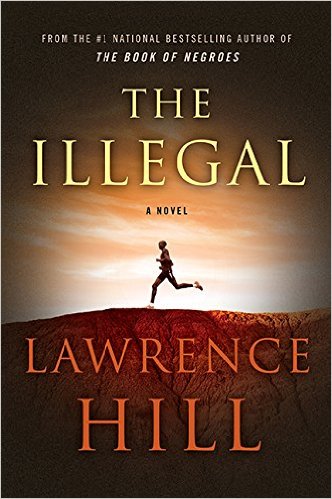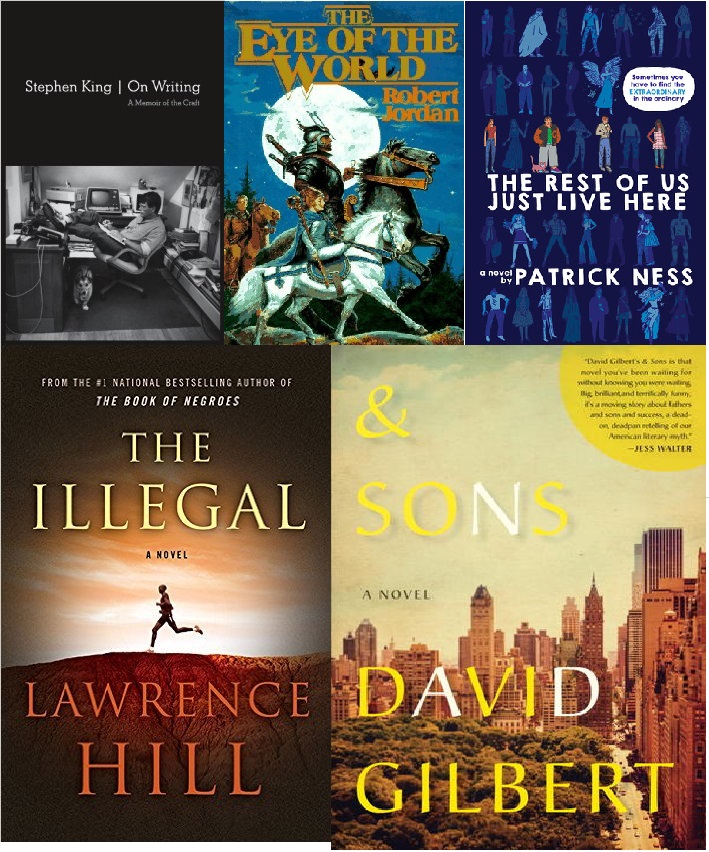This idea, this commitment to read 50 books this year, has already paid dividends. The five books I read in February (books 5-9, overall) were more widely varied than I have read in a long time. Besides the sheer volume of reading I have set for myself, I wanted a few other things to come out of this project. One was to read books recommended by others, and the other was to read more widely than I would otherwise tend to. I have certainly carved a niche for myself in my reading over the last few years; this project has already introduced me to a few incredible books that I probably would not have even picked up otherwise. This project may be of no interest to anyone but myself, and perhaps these updates are merely self-serving, a reminder for myself in posterity. That is reason enough.
Here are the books I read in February, in order, and the words therein that stayed with me:
#5

“It was one of those moments, thankfully rare, when you can spot another person’s core needs, almost by accident – absolutely by accident since those needs are almost graphic when blatant, like seeing the musculature and tendon required to prop up hope.” – & Sons by David Gilbert
If I could have simply copied and pasted the entire manuscript of this novel as one quotation, I would have. & Sons (“Ampersand Sons”, not “And Sons”, for reasons which become apparent in the novel) is a testament to why writing is counted among the arts. Gilbert’s mastery of metaphor and his razor-sharp word choices often read more like poetry than prose. I consumed this book, as it consumed me. The story, about the relationships between and aging writer, his sons, and the family of his childhood friend, is as engrossing as I have read. It parts the curtain on the effect that success and genius can have on relationships, and the ways in which, rightly or wrongly, artists are seen as something more than human. The book is full of Important Questions and Deep Insights. But it was above all else the beauty of Gilbert’s writing, the care with which each sentence was crafted and fine-tuned, which completely took me in. The example above is just one of hundreds. How can you not become taken by a story which takes such a relatable moment, encountering another person in a moment of utter vulnerability, and makes it so visceral? “The musculature and tendon required to prop up hope” is one of the most strikingly beautiful phrases I have ever read. I could not recommend this book more highly.
#6

“Not everyone has to be the Chosen One. Not everyone has to be the guy who saves the world. Most people just have to live their lives the best they can, doing the things that are great for them, having great friends, trying to make their lives better, loving people properly. All the while knowing that the world makes no sense but trying to find a way to be happy anyway.” – The Rest of Us Just Live Here by Patrick Ness
As noted in last month’s round-up, I am a big fan of Patrick Ness. He has written some of the best contemporary Young Adult fiction out there, as well as the astonishingly beautiful The Crane Wife. This newest offering was fine, but in the context of the rest of his writing, it fell pretty flat for me. The premise is strong, and Ness uses a very entertaining device to deliver that premise effectively: the novel is about the lives of the secondary characters in teen science fiction stories, the ones to whom the crazy, world-saving events are NOT happening, and so each chapter is introduced as being about some incredible, fantastical event, and then proceeds to be about something else entirely. It is clever, it is fun. But the problem is that the story being told about these secondary characters is a flat one. The quotation above is the “aha” moment of the novel, and is a perfectly fine one as “aha ” moments go; most of us will never be extraordinary, and that is ok, so long as we do our ordinary things the best we can. But if that was the only thing you read in the entire book, I don’t feel like you would have gotten any less out of it than I did reading the whole thing.
#7

“You can approach the act of writing with nervousness, excitement, hopefulness, or even despair–the sense that you can never completely put on the page what’s in your mind and heart. You can come to the act with your fists clenched and your eyes narrowed, ready to kick ass and take down names. You can come to it because you want a girl to marry you or because you want to change the world. Come to it any way but lightly. Let me say it again: you must not come lightly to the blank page.” – On Writing by Stephen King
On Writing has been on my list for a long time. A LONG time. King is, in my eyes, the greatest storyteller living today. A book on writing written by my favourite writer? Sounds too good to be true.
It was not. I am not treading any new ground by saying that On Writing is the quintessential book on the writer’s craft. It is accessible, honest, blunt, and inspirational. King approaches his role of professor with humility and grace, hoping to guide aspiring writers with his own successes and failures. This should be mandatory reading in every high school English class in the world. I have no doubt that my copy will become one of the most dog-eared books in my library as I thumb through to re-read flagged passages time and again, hoping to hone my own writing to something worth a reader’s time.
It is hard to pick one lesson which stood out among a master class, but the nugget above has certainly stuck with me. Write. Write what you know, and what you feel, and what you fear, and what you love. Do not try to isolate those things which are real from your writing. Writing cannot be done well if it is meaningless to you. If you take it lightly, so will your reader. Instead, harness all the meaning from your experience of life and let THAT be what drives your writing.
#8

“Violence harms the one who does it as much as the one who receives it. You could cut down a tree with an axe. The axe does violence to the tree, and escapes unharmed. Is that how you see it? Wood is soft compared to steel, but the sharp steel is dulled as it chops, and the sap of the tree will rust and pit it. The mighty axe does violence to the helpless tree, and is harmed by it. So it is with men, though the harm is in the spirit.” – The Eye of the World by Robert Jordan
It took me a while to become invested in the gargantuan world which Robert Jordan has created. The Wheel of Time is one of the most widely read fantasy series ever published, and its scope is absolutely massive. Once I got past the initial, overwhelming exposure to this world, I was able to enjoy the story for what it was: an epic battle between good and evil which makes no attempt to hide its derivations from Tolkien, but walks its own path in the end. I will certainly read more of the series (thought perhaps not all of it, as there are twelve books and they are all encyclopedic), but not this year. No time, you understand.
The problem with choosing a quotation from this book was that it was virtually unquotable. The excellence in this book is the storytelling and the world-building, not the writing. The writing, especially in comparison to a titan of the genre such as Tolkien, is actually fairly simplistic. The quotation above, about the ways in which we hurt ourselves and others, is the diamond in the rough; it is the one time the author steps back to wax philosophical and make a larger observation about humanity. And it is a darn good observation, at that.
#9

“Make sure you tell the whole story.” – The Illegal by Lawrence Hill
The Canadian Broadcasting Corporation holds the “Canada Reads” competition each year, celebrating excellence in Canadian writing through exploration of a certain theme. This year’s theme is “starting over,” and The Illegal is among the 5 finalists. It is the story of a marathon runner living as an illegal immigrant in the fictional nation of Freedom State. The novel is as timely as they come, with so much global attention focused on refugees and immigration issues. It was not a long read, nor quite in the same stratus as Hill’s hugely acclaimed The Book of Negroes, but it was a distinctly Canadian look at its central topic.
Like The Eye of the World, however, it was not an overly quotable novel. The line I chose comes from the end of the book, and deals with the standards to which we should hold media outlets and governments when presenting issues of national importance. In North America in particular, cultural consciousness is informed and inflamed by partisan media representing special interests instead of truth. The message of the novel is that every issue is complex, every story contains multitudes. Right and wrong, good and bad are rarely as simple as all that. Our duty as providers and consumers of media is to make sure that stories are told truthfully and responsibly.
*****
Two months down. Ten months and 41 books to go! Check back every month for more Words on Words and other thoughts on An Awfully Big Adventure!

Pingback: Words on Words – July 2016 – An Awfully Big Adventure
Pingback: Words on Words – September 2016 – An Awfully Big Adventure